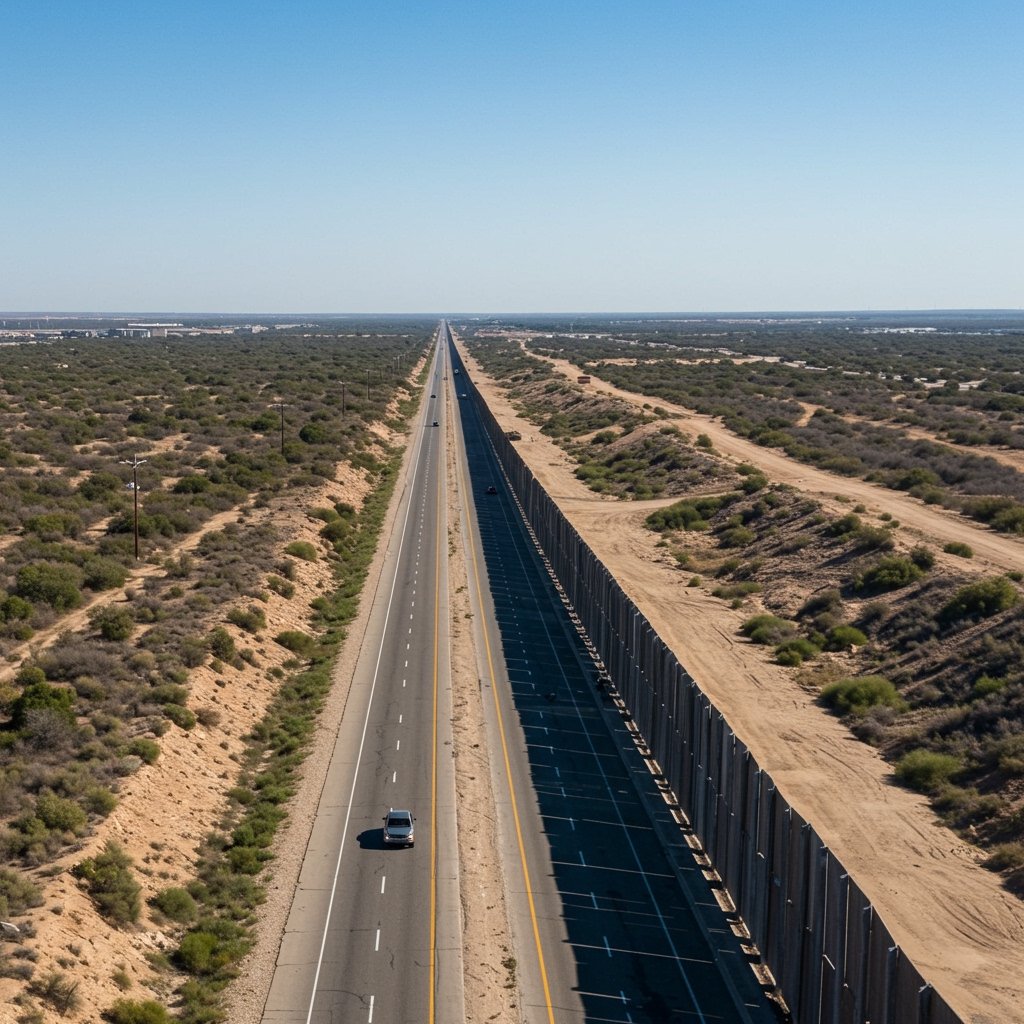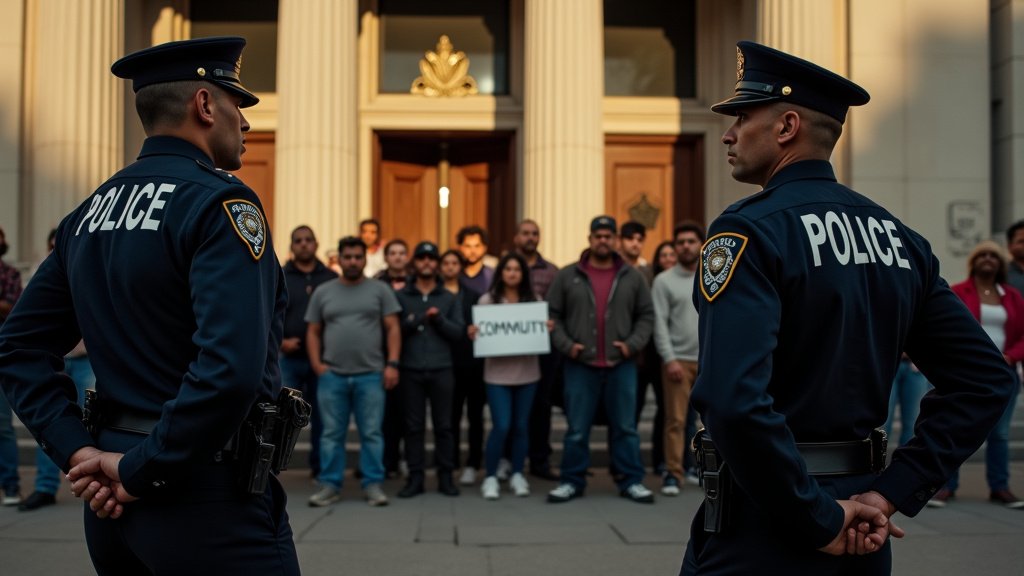Texas Escalates Border Security with “Operation Lone Star Reinforce”
AUSTIN, Texas – On June 10, 2025, Texas Governor Greg Abbott officially announced the launch of “Operation Lone Star Reinforce,” a substantial expansion of the state’s ongoing efforts to secure its border with Mexico. The initiative, positioned as a direct response to what state officials characterize as inadequate federal immigration enforcement, represents a significant commitment of state resources aimed at deterring illegal crossings and curbing smuggling activities.
Funded by a robust $5 billion legislative appropriation, “Operation Lone Star Reinforce” outlines several key components intended to bolster the physical and personnel presence along critical sections of the border. A cornerstone of the project is the construction of approximately 100 miles of new physical barrier. This infrastructure is slated for deployment near two key, high-traffic sectors: Eagle Pass and Del Rio. Unlike previous constructions, this barrier is described as “high-tech,” suggesting integration of advanced surveillance capabilities such as sensors, cameras, and potentially integrated communication systems designed to enhance detection and response capabilities for state law enforcement and military personnel.
In addition to the physical barrier, the operation includes the deployment of an additional 500 National Guard troops. These personnel are intended to supplement the thousands of state guardsmen and Department of Public Safety (DPS) troopers already stationed under the broader “Operation Lone Star” umbrella. Their roles typically include observing and reporting migrant activity, assisting DPS with arrests, and providing support for barrier construction and maintenance.
Governor Abbott, in his announcement, emphasized the state’s constitutional authority to defend itself and secure its borders, citing a perceived failure of the federal government to fulfill its duties under Article IV, Section 4 of the U.S. Constitution, which mandates that the federal government shall protect each state against invasion. State officials argue that the surge in illegal immigration constitutes such an event, necessitating independent state action.
Immediate Legal Challenge Arises
The ink had barely dried on the official announcement before the project faced an immediate and significant legal challenge. The American Civil Liberties Union (ACLU) of Texas filed a lawsuit in the Western District of Texas, directly challenging the legality and constitutionality of “Operation Lone Star Reinforce” and elements of the broader “Operation Lone Star.” The lawsuit alleges that the state’s actions represent a clear instance of constitutional overreach, arguing that immigration enforcement is primarily a federal responsibility, preempted by federal law and authority.
The ACLU’s complaint further contends that the state’s expansive border operations have resulted in systematic civil rights violations against migrants, asylum seekers, and even U.S. citizens and legal residents living and working along the border. Allegations include unlawful arrests and detention, due process violations, discriminatory practices, and the creation of dangerous conditions along the Rio Grande and surrounding areas.
Legal experts anticipate the lawsuit will hinge on fundamental questions regarding the division of powers between state and federal governments, particularly in the complex realm of immigration law. The state is expected to defend its actions by invoking sovereignty arguments and the aforementioned self-defense clauses, while the ACLU and potentially the federal government will likely argue that Texas’s operations interfere with established federal immigration processes and violate the Supremacy Clause of the U.S. Constitution.
Federal Government Expresses Concern
The Department of Homeland Security (DHS) in Washington D.C. also weighed in shortly after the Texas announcement, issuing a statement that expressed significant concerns regarding the state’s actions. While the statement did not signal immediate legal action from the federal government, it highlighted potential conflicts and complications arising from Texas’s independent operations.
DHS officials articulated worries that the state’s construction of barriers and deployment of state forces could inadvertently interfere with, or even obstruct, ongoing federal immigration enforcement efforts conducted by agencies like Customs and Border Protection (CBP) and Immigration and Customs Enforcement (ICE). Concerns were also raised about operational coordination, potential safety risks for federal personnel, and the lack of unified command in a complex operational environment.
The federal government maintains that while states have a role in law enforcement within their borders, the authority to regulate immigration and manage international borders rests squarely with the federal government. This position sets the stage for potential legal and jurisdictional clashes between Austin and Washington as “Operation Lone Star Reinforce” gets underway.
Context of Operation Lone Star
“Operation Lone Star Reinforce” is presented as an extension and intensification of the original “Operation Lone Star,” which was initiated in March 2021. The initial operation saw Texas dedicate state resources, including the National Guard and DPS, to border security, focusing on arresting migrants for state crimes like trespassing and property damage, and building limited sections of state-funded border barrier.
Critics of Operation Lone Star have consistently raised issues regarding its cost-effectiveness, legal basis, and humanitarian impact. Proponents, conversely, credit the operation with increasing state-level arrests and seizing narcotics, portraying it as a necessary backstop against what they view as the federal government’s failure to secure the border.
The $5 billion allocation for “Operation Lone Star Reinforce” represents a significant escalation in state spending on border security and underscores Texas’s determination to pursue its own border management strategy, despite ongoing legal and political challenges.
Outlook: Courtroom Battles and Operational Friction
The launch of this multi-billion dollar project signals a new phase in the ongoing dispute between the state of Texas and the federal government over border policy. The immediate legal challenge from the ACLU of Texas ensures that the project’s legality will be scrutinized in federal court, potentially leading to injunctions or significant limitations on the state’s authority.
The federal government’s expressed concerns also foreshadow potential operational friction and jurisdictional disputes on the ground, as state and federal personnel operate in the same areas with potentially conflicting authorities and objectives.
The outcome of the lawsuit in the Western District of Texas will likely have profound implications not only for “Operation Lone Star Reinforce” but also for the balance of power between state and federal governments on immigration and border security matters across the United States. The state’s ambitious project is set to unfold against a backdrop of intense legal and political conflict.






